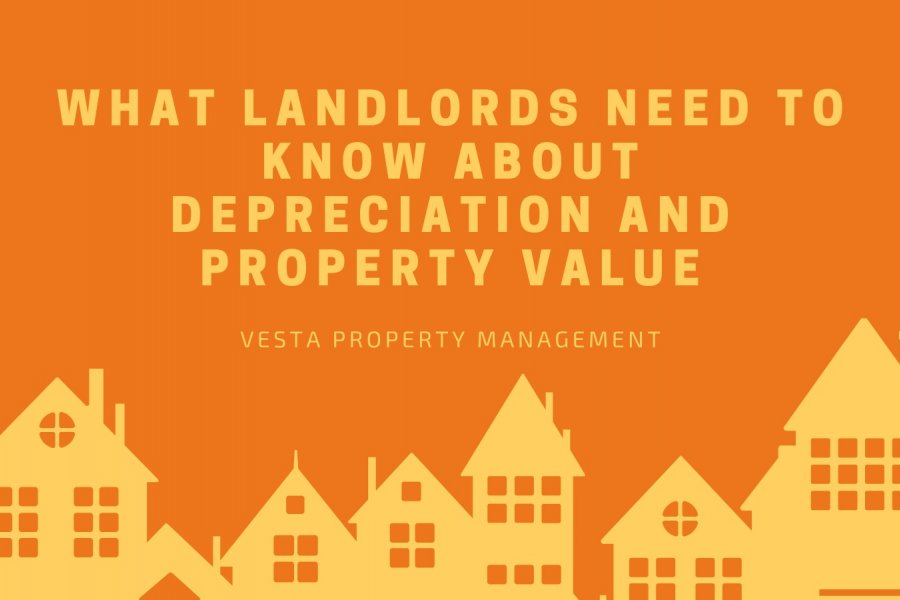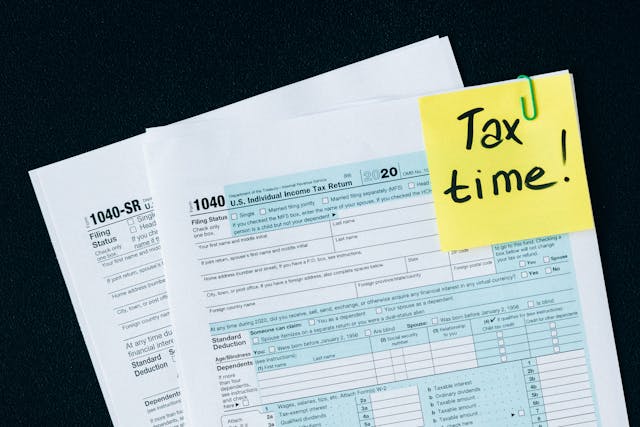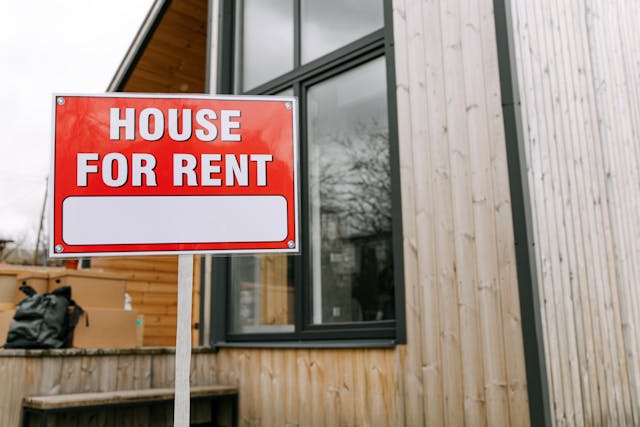
- Depreciation is a Powerful Tax Tool: Claiming depreciation can reduce your taxable rental income and improve your overall cash flow when used correctly.
- Skipping Depreciation Can Cost You: The IRS assumes you claimed it whether you did or not, so skipping it means losing out on tax savings with no benefit at sale.
- Let the Experts Handle the Details: Working with a property manager like Vesta Property Management helps ensure depreciation, maintenance, and upgrades are all handled with your financial goals in mind.
At Vesta Property Management, we help rental property owners in Winchester, VA, understand how depreciation affects property value and financial performance. Whether you own a vacation rental or a long-term investment, depreciation plays a key role in your taxes, profit margins, and overall property management strategy.
What Is Depreciation in Real Estate?
Depreciation is the process of deducting the cost of your rental property over a period of time. According to IRS guidelines, you can depreciate a residential rental building (not the land) over 27.5 years. This means you can claim a portion of your property’s cost as a tax deduction each year, lowering your taxable rental income.
Depreciation reflects the natural wear and tear of the property, but it’s more than just a number on paper; it’s a powerful tax strategy that allows you to recover part of the investment you’ve made in your home.
Learn How We Can Help You Maximize Your Home’s Potential.
How Does Depreciation Affect Property Value?
Depreciation doesn't reduce your home's market value, it’s purely an accounting method. In fact, Winchester property values may continue to rise even as you claim depreciation each year.
However, depreciation affects your property value in the eyes of the IRS. When you sell the property, the IRS “recaptures” the depreciation by taxing the amount you deducted during ownership. This is known as depreciation recapture, and it’s taxed at a rate of up to 25%.

Benefits of Rental Property Depreciation
Properly utilizing depreciation at tax time can offer significant financial advantages, including:
- Lower Taxable Income: Annual depreciation reduces your net rental income, which means less is subject to federal income taxes. This is particularly helpful for vacation rental owners in Winchester who experience strong seasonal income spikes.
- Offsetting Maintenance Costs: While physical repairs are not part of depreciation, the tax savings from depreciation can help cover ongoing maintenance and upgrades.
- Improved Cash Flow: By lowering your tax bill, depreciation helps improve your cash flow. More money in your pocket means more flexibility for investing in upgrades or acquiring additional properties.
Discover the Benefits of Hiring Vesta Property Management!
Requirements for Depreciating a Rental Property
To qualify for depreciation, your property must meet the following criteria:
- You must own the property. If you’re leasing or subleasing, you cannot claim depreciation.
- The property must produce income. This means it must be available for rent and not used as a personal residence for the majority of the year.
- The property must have a determinable useful life. This applies to buildings, not land.
- The property must be expected to last more than a year.
If you’ve recently purchased a vacation rental in Winchester and are preparing to rent it out, you’ll want to make sure the property is listed as "available for rent" as soon as it’s ready, so you can start the depreciation clock.

How to Calculate Depreciation
Rental property depreciation is typically calculated using the Modified Accelerated Cost Recovery System (MACRS). Here’s how the process works in simplified terms:
- Determine the basis of the property (usually the purchase price plus certain expenses like closing costs).
- Subtract the value of the land.
- Divide the depreciable amount by 27.5 years (for residential properties).
Although the math seems simple, it’s important to work with a tax professional to ensure all adjustments, like improvements or previous deductions, are factored in properly. Inaccurate calculations can lead to IRS penalties or missed deductions.
Learn How We Help Real Estate Investors Succeed!
Depreciation and Property Improvements
Any upgrades or renovations that add value to your property can also be depreciated, but separately from the main structure. These are considered capital improvements and are depreciated over their timeline depending on the item.
What Happens If You Don’t Claim Depreciation?
Some landlords choose not to claim depreciation, either out of misunderstanding or concern about recapture taxes down the line. Unfortunately, the IRS treats depreciation as if you did claim it, even if you didn’t. That means when you sell, you’ll still be liable for the depreciation recapture, regardless of whether you took the deductions.
So if you're not claiming depreciation, you’re missing out on years of tax savings with no benefit when it's time to sell.
Property Appreciation vs. Depreciation
While depreciation reduces your tax burden, appreciation increases the market value of your home. Winchester, VA, has seen steady growth in home values in recent years, especially in areas that attract vacationers, remote workers, or long-term renters seeking small-town charm.
If you maintain your property well, make strategic upgrades, and keep occupancy rates high, your asset may appreciate significantly over time. Depreciation and appreciation can work together, while one reduces your taxes, the other increases your equity.

Why Work With a Property Management Company
Managing depreciation, tracking expenses, overseeing upgrades, and maintaining compliance with tax laws can quickly become overwhelming. This is where working with a professional property management company in Winchester can make all the difference.
A property manager can help you:
- Keep detailed records for tax purposes.
- Track capital improvements for depreciation purposes.
- Maintain the home in a way that boosts long-term value.
- Minimize vacancies and maximize rental income.
- Provide recommendations on strategic upgrades that increase both value and appeal.
If you're a vacation rental owner, professional managers can also handle short-term rental logistics, such as guest communication, cleaning coordination, and pricing strategy, while keeping your financial goals top of mind.
Discover Our Property Management Services!
Bottom Line
Understanding how depreciation and property value interact is crucial to optimizing your investment in Winchester’s real estate market. Depreciation is not just a tax benefit, it’s a planning tool. When paired with long-term appreciation, rental income, and professional property management, it becomes part of a powerful strategy for building wealth.
For rental property owners in Winchester, Vesta Property Management offers local expertise backed by professional systems to help you manage your property with confidence. From vacation rental support to long-term asset planning, Vesta is your partner in maximizing your investment.